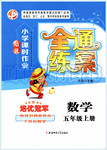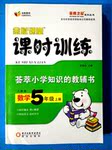题目内容
If something happens that makes you feel angry, try these things to help prevent angry feelings from building up inside.
1) Exercise. Go for a walk, work out, or go to play a sport. Lots of research has shown that exercise is a great way to improve your mood and decrease negative feelings.
2) Write down your thoughts and emotions. You can write things in lots of ways, for example, in a journal or as your own poetry or song lyrics(歌词). After you’ve written it down, you can keep it or throw it away—it doesn’t matter. The important thing is, writing down your thoughts and feelings can improve how you feel. When you notice, label, and release feelings as they show up in smaller portions, they don’t have a chance to build up inside.
3) Think deeply or practice deep breathing. This method is the best one among all the tips if you do it regularly, as it’s more of an overall stress management technique that can help you use self?control when you’re mad. If you do this regularly, you’ll find that anger is less likely to build up.
4) Talk about your feelings with someone you trust. Lots of times there are other emotions, such as fear or sadness, beneath anger. Talking about them can help.
These ideas can be helpful for two reasons:
1) They help you cool down when you feel like your anger might explode. When you need to cool down, do one or more of the activities in the list above. Think of these as alternatives(可选择的办法)to taking an action you’ll regret, such as shouting at someone. Some of them, like writing down feelings, can help you release tension and begin the thinking process at the same time.
2) They help you manage anger in general. What if there’s no immediate problem to solve—you simply need to shift into a better mood?Sometimes when you’re angry, and you have no better way to manage anger although you have tried your best, you just need to stop dwelling on how mad you are.
1.The passage is mainly about________.
A.some ways that help solve immediate problems
B.how to deal with angry feelings
C.some kinds of anger that people often feel
D.how to manage tension
2.If you write down your feelings, you may________.
A.create some poetry
B.improve the way you feel
C.make your mood worse
D.discover something about yourself
3.According to the passage, the best way for people to feel better is to________.
A.think deeply or practice deep breathing regularly
B.go for a walk regularly
C.write down their thoughts and emotions
D.have a talk with people they trust
4.You will probably feel regretful if you________.
A.are hurt by other people’s anger
B.throw away what you have written about your feelings
C.show your anger to others
D.find ways to control anger
1—4 BBAC
1. 根据第一段 “...to help prevent angry feelings from building up inside” 可知,本文主要介绍的是抑制怒火的方法。
2. 根据第三段“The important thing is, writing down your thoughts and feelings can improve how you feel”可知,答案为B。
3. 根据第四段 “Think deeply or practice deep breathing. This method is the best one among all the tips if you do it regularly...”可知,答案为A。
根据第七段 “Think of these as alternatives to taking an action you’ll regret, such as shouting at someone”可知,当对别人发火后,自己可能会后悔。

 小学课时作业全通练案系列答案
小学课时作业全通练案系列答案 金版课堂课时训练系列答案
金版课堂课时训练系列答案 单元全能练考卷系列答案
单元全能练考卷系列答案 新黄冈兵法密卷系列答案
新黄冈兵法密卷系列答案New York City schoolchildren can’t use cellphones at school because of Mayor Michael R. Bloomberg’s ban on cellphones in schools. Many parents are opposed to Mayor Michael R. Bloomberg’s ban on cellphones in schools by e-mail messages.
There was a 13-year-old student who was shot with a gun after school, unable to call his mother for help. There was a high school student robbed three times last year, twice in her school building. There was a girl who got a piece of glass placed in her eye during school and was saved from a possible cornea transplant (角膜移植) only because, having disobeyed the cellphone ban, she was able to call her mother and get an operation on time.
The ban has been on for years, but it set off a widespread parental outcry only in April, after some headmasters sent home letters reminding parents that cellphones are not allowed to be brought into school.
Mr Bloomberg has defended the ban, saying that cellphones are bad and often used to cheat or call in friends for fights. If something is important, he says, parents can call schools directly.
On the other hand, many of the e-mail messages from parents described the ban as “cruel and heartless”, “absurdly(荒谬地) wrong-headed”, “anti-parent”, “ridiculous”.
“We respect the fears that parents have,” David Cantor, a spokesman for Schools Minister Joel I. Klein said, “but after all the fact is that having phones in schools always leads to more problems.”
【小题1】A 13-year-old student was shot with a gun after school, unable to call his mother for help, because ____.
| A.his mother had no cellphone |
| B.his mother wasn’t at home |
| C.he didn’t take a cellphone with him |
| D.he was too frightened to call |
| A.agreed to | B.thought highly of |
| C.supported | D.were opposed to |
| A.call off the ban |
| B.continue the ban |
| C.thank the parents |
| D.allow some students to use cellphones at school |
根据短文内容,从短文后的选项中选出能填入空白处的最佳选项。选项中有两项为多余选项。
Test-taking tips
Do you sweat, check your pencil, and feel butterflies in your stomach as your teacher hands out the test paper? A lot of people feel anxious when it is time to take a test. Here are some tips for taking tests:
1 .Your memory recall will be much better if you have had enough rest. In a scientific study, people who got enough sleep before taking a math test did better than those who stayed up all night studying.
Read the test through first. Once you have the test paper in front of you, read over the entire test, checking out how long it is and all the parts that you are expected to complete. 2 .If something seems unclear before you start, do not panic: ask the teacher.
Focus on addressing each question individually. 3 . Instead, answer the best way you can or skip over the question and come back to it after you have answered other questions.
Relax. 4 .Of course you can not get up and move around in the middle of a test, but you can wiggle (扭动) your fingers and toes, take four or five deep breaths. As we all know, It can be easy to forget things we know well. During a test, if you forget something and start to get tense, it suddenly becomes much more difficult to remember.
Finished already? Although most teachers will let you hand your test paper in early, it is usually a good idea to spend any extra time checking over your work. 5 .On the other hand, if you have 5 minutes until the bell rings and you are still writing, wind up whatever you are working on without panic.
| A. Be sure you have studied properly. B. Get enough sleep the night before the test. C. This will allow you to decide how much time you have for each section. D. As you take the test, if you do not know an answer, do not worry about it. E. As the teacher hands out the test paper, be sure you know what is expected of you. F. You can also add details that you may not have thought you’d have time for. G. If you are so nervous that you blank out, you might need a mini-break. |